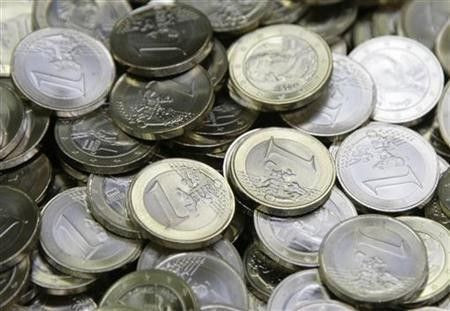3 Things You Need To Know About Greece's Default

Greece's default revealed critical truths about the nation, the euro zone and a relatively new form of insurance that protects bond investors against a default.
Billions have been spent rescuing Greece, and what taxpayers have received, at least so far, is an insight into the country's financial stability. The public has also gotten a sense of how the European Central Bank would handle a similar crisis in Portugal or Spain. Finally, bond investors who bought insurance, known as credit default swaps, found out just what that coverage does and doesn't include in the clutch.
What Worked, Sort Of
Worries abounded during the run-up to Greece's technical default on March 9, as many investors who had hedged Greek bonds with credit default swaps, or CDSs, feared the troika of lenders -- the European Union, the International Monetary Fund and the ECB -- would be able to prevent CDS payouts. The troika wanted to restructure Greece's debt without a default. That meant getting private-sector holders of bonds regulated by Greek law to voluntarily accept far less than what they normally would have been paid. This maneuver was called an orderly default and its success was shown in the ability of the troika to block CDS payments from being made.
However, events of the past two weeks confirmed that an orderly default is still a default and that the world's first test of CDS protection against a sovereign-debt credit event turned out relatively well. A two-stage auction of reissued bonds, conducted Monday, resulted in investors and banks that held CDSs on Greek debt getting a payout of 78.5 cents for every dollar of CDS protection held. Besides the CDS payment, the auction earlier this week gauged the value of the new Greek bonds, and those were given to CDS holders. The upshot was that bond investors were made more or less whole.
Beware Greeks Bearing Debt
The default and auction provided a glimpse into Greece's ability to borrow. The price of Greek bonds at this week's auction was set at 21.5 percent of face value, slightly lower than the predicted 22 percent to 25 percent and a strong statement about just how unattractive the Mediterranean country's debt now is to the investment community.
These bonds are trading at a huge discount and this tells you the market has doubts about whether Greece will be able to cope, but that's been known all along and this auction doesn't change this, Commerzbank rate strategist Christoph Rieger was quoted by Reuters as saying.
Even firms that specialize in buying distressed assets avoided the auction because of the specter of another Greek default in the not-so-distant future.
The new Greek bonds are trading at very low [prices] and at very high yield so the market is still pricing in another restructuring, Nikolaos Panigirtzoglou, a rate strategist at J.P. Morgan Chase & Co., told Reuters.
Besides the ugliness of bonds, the auction offers a view of just how financially impotent Greece's banks have become. They were virtually absent from the auction because, without bailout loans yet to be disbursed by the troika, the banks simply didn't have enough money to bid -- even for their own government's ultra-discounted debt, said Michael Hampden-Turner, an analyst for Citigroup Inc.
In The Eye Of The Storm
The Greek event, beyond showing that a CDS on a sovereign-debt default will function much the same as in a private default, and that investors have little interest in Greece's bonds, brings into focus a new threat to the euro zone.
That threat is the possibility, even likelihood, that weak members of the 17-state currency area will become dependent on cheap ECB loans or even handouts from the central bank.
That's because rather than going down with the ship, so to speak, the ECB essentially tried to lighten the vessel by throwing private investors overboard.
The Greek default was an agreement to force losses on private bondholders but to keep the troika and ECB whole, said Jerome Fons, executive vice president for Kroll Bond Ratings.
Investors won't soon forget.
Since the Greek default, the larger the ECB's stake in a country, the less likely it will be to take a loss alongside private investors in the event of a default. Forcing a write-down on the value of privately held Greek bonds set a dangerous precedent, demonstrating that the larger the sovereign-bond holding by the ECB, the more likely it is that investors will be sacrificed in the event of a default to prevent losses for the central bank.
That prospect, as well as Greece's retroactive insertion of collective action clauses in its sovereign-debt covenants to force bondholders to accept big losses, may deter investors from buying bonds issued by Portugal or Spain, a development that would force those countries to seek ECB help sooner than they might otherwise have.
© Copyright IBTimes 2024. All rights reserved.





















